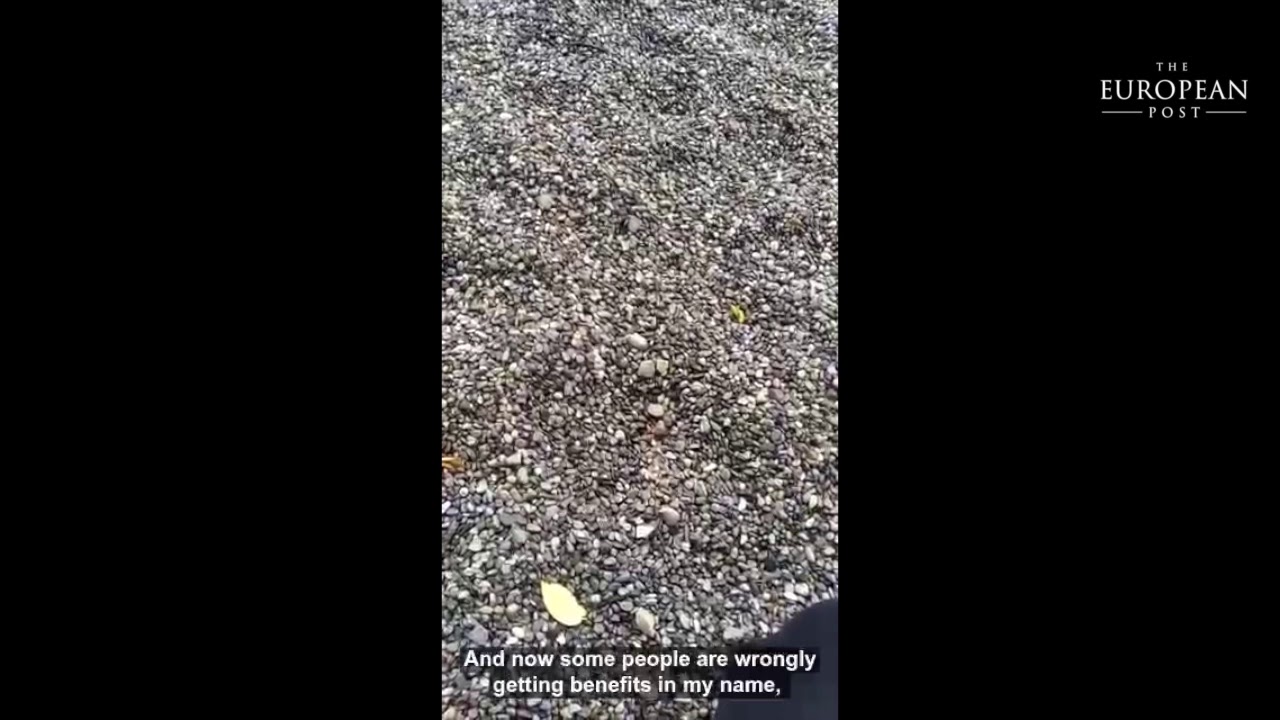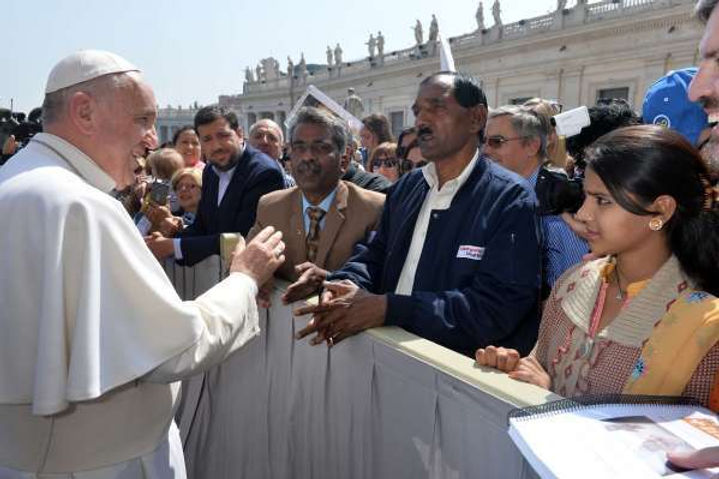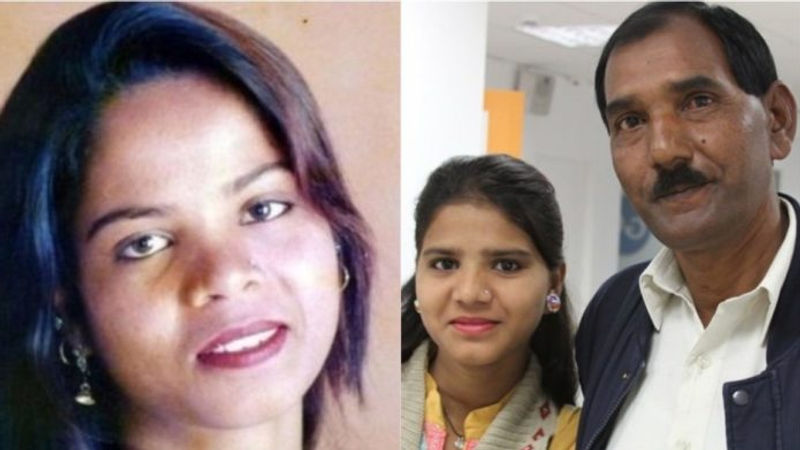Tag: Asia Bibi
-
Mala zomrieť pre svoju vieru. Podarilo sa jej však prežiť a za to dnes ďakuje Slovákovi, Jánovi Figeľovi
https://www.noviny.sk/slovensko/469855-mala-zomriet-pre-svoju-vieru-podarilo-sa-jej-vsak-prezit-a-za-to-dnes-dakuje-slovakovi-janovi-figelovi BRATISLAVA / Hovoríme o pakistanskej žene, ktorú doma obviňovali z rúhania sa prorokovi Mohamedovi. Jej príbeh roky ostro sledoval celý svet. Dnes žije v utajení v kanadskom exile. Pakistanka Asia Nóriová, známa ako Asia Bibi, sa počas prác na poli napila z verejnej studne a pohár vody podala svojej moslimskej spolupracovníčke. Ďalšie ženy ju
-
Release of Asia Bibi shows promise for religious freedom
Budapest, Hungary, Sep 12, 2019 / 12:02 am (CNA).- A European Union official who played a role in working for the release of Pakistani death row inmate Asia Bibi said the outcome shows the potential of international cooperation to promote religious freedom. Ashiq Mesih and Eisham Ashiq, Asia Bibi’s husband and daughter in Rome April
-
Pakistanka ODSÚDENÁ NA SMRŤ: Chcem poďakovať anjelovi, JÁNOVI FIGEĽOVI
Bratislava 11. septembra (Teraz.sk) – Pakistanská kresťanka Ásíjá Nóríová, mediálne známa ako Asia Bibi, vo svojom prvom živom videu z exilu zverejnenom na portáli The European Post ďakuje ľuďom, ktorí jej pomáhali v čase, keď sedela v cele smrti, a špeciálne slovenskému politikovi Jánovi Figeľovi. „Chcem poďakovať anjelovi, osobe, ktorá mi doteraz pomáhala od môjho
-
Asia Bibi, prime parole dal Canada: “Non ho mai indebolito la mia fede”
E Jan Figel, inviato speciale dell’Unione Europea per la libertà religiosa, spiega ad ACI Stampa le tappe che la hanno portata in Canada BUDAPEST, 11 settembre, 2019 / 6:00 PM (ACI Stampa). Dal luogo in Canada dove è con la sua famiglia a seguito dell’assoluzione dalla condanna a morte per blasfemia, Asia Bibi invia un
-
Asia Bibi thanks EU’s Figel in her first live message from exile
“I want to thank an angel, a person who helped me from my imprisonment until now: that person is Jan Figel, the EU’s special envoy for Religious Freedom,” says Asia Bibi, the Pakistani Christian woman who spent eight years on death row after being accused of blasphemy, in her first live message from her exile
-
Asia Bibi rompe su silencio y dice que quiere mudarse a Europa
Tras pasar 9 años en el corredor de la muerte por una acusación falsa de blasfemia, Asia Bibi es entrevistada por un diario británico. Asia cuenta los años terribles de prisión y como se logró su liberación, así como los planes de futuro que tiene. La mujer cristiana pakistaní que estuvo 9 años en el
-
Asia Bibi pleads for justice for victims of Pakistan’s harsh blasphemy laws as she plans to set
As Asia Bibi sits free at last in a secret location in Canada, the Pakistani Christian woman who spent years on death row after a false blasphemy charge thinks of those left behind still facing the same ordeal. Nearly four months after the 54-year-old finally left Pakistan following a miscarriage of justice that caused worldwide
-
Otázka náboženskej slobody je otázkou života a smrti
Bratislava 15. mája (TABLET.TV) – Otázka náboženskej slobody je otázkou života a smrti. V súvislosti s prepustením pakistanskej kresťanky známej pod menom Ásijá bíbí to pre TABLET.TV uviedol Ján Figeľ, osobitný vyslanec Európskej únie pre slobody náboženstva alebo viery vo svete. Ásiju bíbí, matku piatich detí, pôvodne v roku 2010 odsúdili na smrť obesením za






